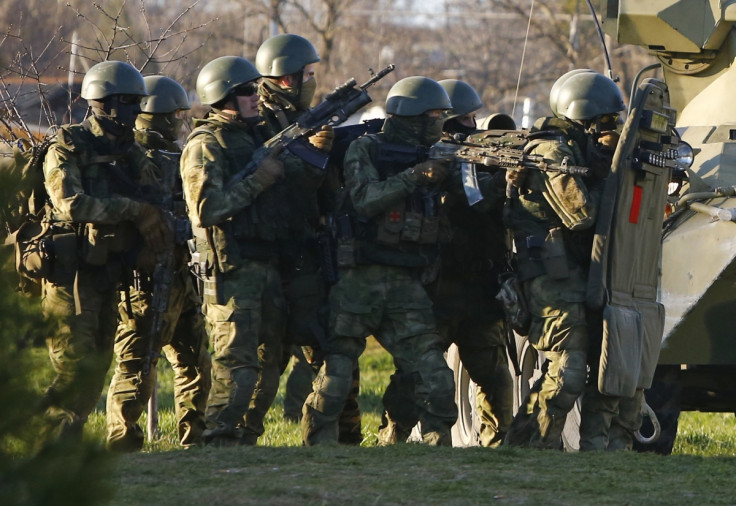Ukraine Crisis: Russian Troops Seize Crimea Feodosia Naval Base

Russian troops have stormed and taken control of a Ukrainian naval base using stun grenades in the port city of Feodosia.
The Russian troops entered the compound firing weapons before taking Ukrainian officers away for questioning, a soldier inside the military complex told Reuters.
Unarmed Ukrainian soldiers occupying the base were rounded up by the Russian troops and had their hands tied, according to Ukrainian defence ministry spokesman Vladislav Seleznyov.
The base was one of the last symbols of Ukrainian resistance in the recently-annexed region but is now under Russian control after troops removed Ukrainian flags from the base.
"The invading troops were using stun grenades and also firing automatic weapons. The interior of the compound is full of Russian troops," said Vladislav Seleznyov, a Ukrainian military spokesman in Crimea.
Russian forces already had control of part of the base but the Ukrainian military still controlled the armoury, the barracks and other facilities before the takeover.
The move by Russian troops comes just days after they had captured Belbek airbase near Sevastopol using armoured vehicles and automatic weapons.
100 monitors from the Organisation for Security and Co-operation in Europe (OSCE) will soon arrive in the region to gauge the political and security situation.
Russia agreed to the move but has refused to allow the monitors entry into Crimea.
A statement from the Russian Foreign Ministry said: "The mission's mandate reflects the new political and legal realities and does not apply to Crimea and Sevastopol, which became a part of Russia.
"Russia hopes that the objective and impartial work of the international observers will help to overcome the internal Ukrainian crisis, stop rampant nationalist banditry, eradicate ultra-radical tendencies."
© Copyright IBTimes 2025. All rights reserved.






















